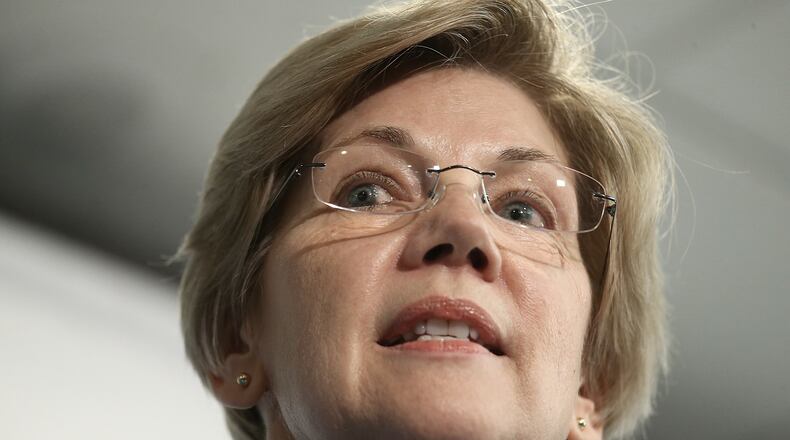UPDATE at 3:53 p.m.: Senate Democrats' holdout lasted only about 24 hours, as a deal to let the TPA vote move forward was announced this afternoon . In practical terms, they seem to have gained little with their antics: They'll get a vote on three separate trade-related matters, as they were supposed to before, but they won't be attached to the TPA bill itself, which is also how things stood Tuesday. So it's not clear why the Warren Democrats held out and then caved. But it is clear that, just as Tuesday, they are more interested in exporting U.S. regulations than in exporting U.S. goods.
ORIGINAL POST:
The Democratic Party of Harry Truman, John F. Kennedy and even Bill Clinton is one step closer to the grave after Tuesday's vote against Trade Promotion Authority for President Obama . Democratic senators united against one of the president's central policies for the remainder of his term in office: finalizing a trans-Pacific trade agreement to open up markets in 11 other countries to American products and make their products more accessible to American consumers.
For decades, both Republicans and Democrats viewed freer trade as a net positive for America. Yes, opening our market can harm workers in certain industries, as many former textile workers in the South can attest. But on the whole, reducing trade barriers such as quotas, tariffs and subsidies generates wealth for all parties involved by allowing nations to maximize their own advantages, to our mutual benefit.
By far, the best way to liberalize trade is through treaties among as many countries as possible, because that puts more markets on equal legal footing. Otherwise, companies and consumers are faced with a complex web of varying rules depending on where in the world they're doing business. The first three rounds of modern, multilateral trade deals were completed during the Truman administration. The so-called Kennedy round of talks, begun six months after its namesake's assassination, was an enormous expansion that more than doubled the number of participating countries and removed an estimated $40 billion in tariffs -- helping producers and consumers alike. Regional pacts, such as NAFTA, are somewhat less effective at growing the economy, with bilateral deals much further behind because of the hodgepodge of often wildly different trading conditions they create.
The Trans-Pacific Partnership would land somewhere in between a true multilateral and a regional deal, as it would incorporate 12 countries representing some 40 percent of global GDP. China wouldn't be included, but the TPP would include Japan (the world's No. 3 economy), Canada (No. 11), Australia (No. 12), Mexico (No. 15), Malaysia (No. 35), Singapore (No. 36) and Chile (No. 41), as well as Brunei, New Zealand, Peru and Vietnam. Opening up Japan's market further is of particular value to U.S. producers. And as we already have bilaterals with four of these countries, plus NAFTA with two others, this could help make trade less complex for American companies.
Obama and Republican leaders had worked out enough of their differences to allow the president to finish the negotiations and bring a deal to lawmakers for an up-or-down vote -- which, in the end, is all Trade Promotion Authority authorizes. But although Republicans had already yielded on the issue of subsidies for workers affected negatively by the deal, Democrats led by Sens. Elizabeth Warren of Massachusetts and Sherrod Brown of Ohio voted nearly unanimously to block the bill. (Only Sen. Tom Carper of Delaware broke with the caucus.)
Warren and Brown cited concerns the president would sell out American workers to boost big business, a pretty baseless worry as long as Obama is in the White House. If Republicans could get over their concerns that a trade deal would become so laden with sops to labor unions and environmentalists as to be worthless -- which is pretty much what Warren & Co. are demanding -- surely Democrats could trust their own man. Instead, we got Brown calling Obama "sexist" for publicly and pointedly dismissing Warren's charges.
That may be the first sign that Obama is truly a lame duck even within his own party. But far more worrisome is that Democrats seem poised to completely abandon a concept that has done more to help prosperity than hurt it, here and abroad.
About the Author
Keep Reading
The Latest
Featured



